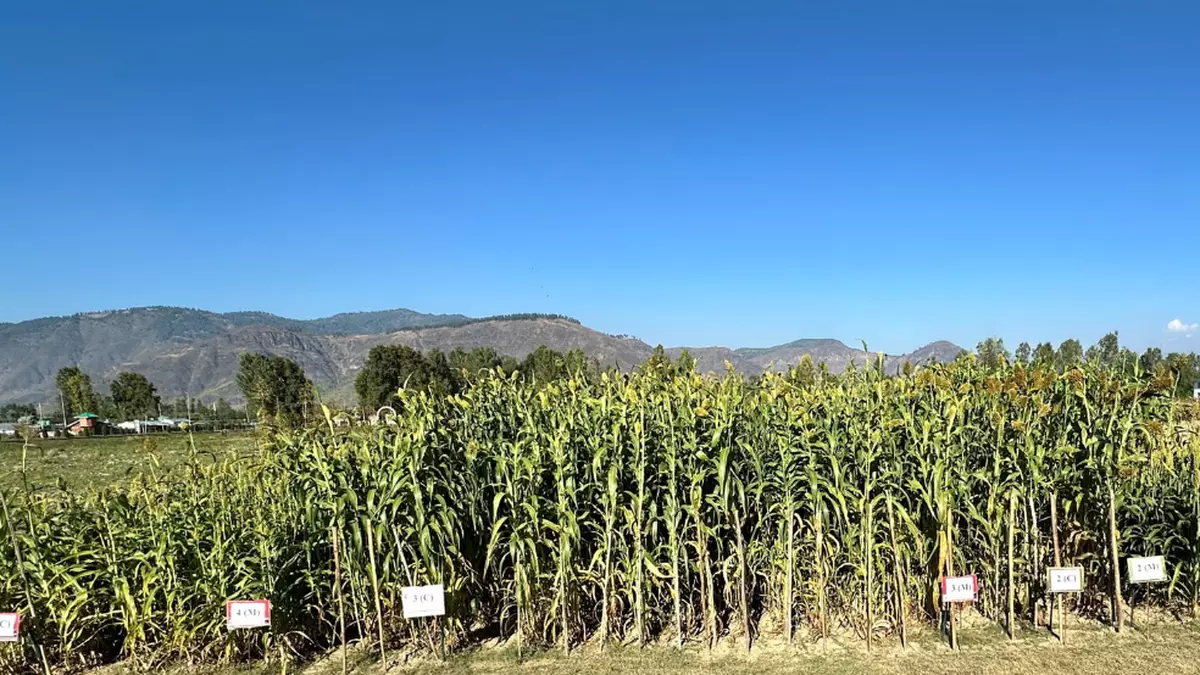Cold-defying sorghum to transform farming in Kashmir
In a groundbreaking development, the frigid terrains of Jammu and Kashmir are set to welcome a new crop in 2025 – sorghum, which is predominantly a dryland crop. This hardy, drought-resistant crop, traditionally grown in warmer climates, has been successfully adapted to the region’s cold temperatures, marking a significant agricultural breakthrough.
The International Crops Research Institute for the Semi-Arid Tropics (ICRISAT), in collaboration with the Sher-e-Kashmir University of Agricultural Sciences and Technology (SKUAST), Kashmir, has jointly worked on this project to develop these cold-resistant sorghum varieties.
Through rigorous research and on-farm trials, they have developed elite sorghum lines that can thrive in the unique agro-climatic conditions of the Kashmir Valley.
This breakthrough is not just about introducing a new crop; it’s about transforming the agricultural landscape and uplifting the livelihoods of farmers in the region. The dual-purpose sorghum varieties, providing both grain and forage, aim to address the critical feed shortage in the region’s livestock sector, a vital pillar of the local economy.
Currently, Kashmir faces a 40% fodder deficit, impacting livestock productivity and the incomes of farmers, especially those in marginalised communities. The introduction of high-yielding, nutritious sorghum varieties, with biomass production of up to 50 tonnes per hectare, is expected to bridge this gap, boosting the rural economy and enhancing food security.
“Developing elite sorghum lines tailored to Kashmir’s high-altitude ecologies is a remarkable achievement that will further inform our efforts to extend the cultivation north of 40° latitude,” Ephrem Habyarimana, Principal Scientist – Sorghum Breeding, at ICRISAT, said here on Monday, commenting on the breakthrough.
The project aims to enhance sustainable livestock production and improve the socio-economic conditions of marginalized farmers across the Kashmir Valley by releasing these cold-tolerant sorghum varieties in 2025.
“This marks a significant step toward achieving feed, fodder, and livelihood security, especially for underprivileged tribal communities in high-altitude areas,” Nazir A Ganai, Vice Chancellor of SKUAST Kashmir, said in a statement.
